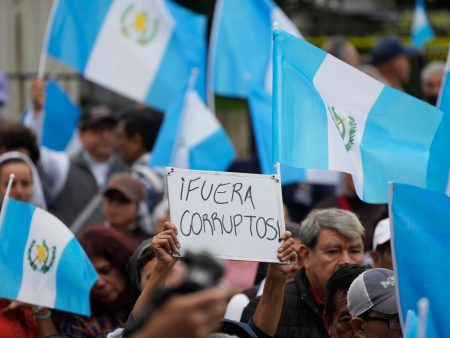The Colombian government’s call to renegotiate trade deals with powerful nations like the US, EU, and UK highlights a critical issue in international trade: the erosion of national sovereignty, particularly in the Global South, due to investor-state dispute settlement (ISDS) clauses. These clauses, embedded within trade agreements, empower multinational corporations to sue governments in secretive international tribunals, effectively bypassing national legal systems. Colombia’s president, Gustavo Petro, rightfully describes this system as a “bloodbath” for national sovereignty. His stance is bolstered by recent actions of Western countries themselves, including the UK’s withdrawal from the Energy Charter Treaty – a move prompted by numerous lawsuits from fossil fuel companies challenging climate action. This hypocrisy underscores the double standard inherent in the current system: while Western nations seek to extricate themselves from the very mechanisms they imposed on developing countries, they resist calls for similar freedom for the Global South.
The core of this contentious issue lies with ISDS, a system initially designed to protect Western corporate interests in developing countries. Ironically conceived to prevent nationalization of assets like oilfields, this inherently neocolonial mechanism has evolved into a powerful tool for corporations to challenge any regulation deemed unfavorable. These challenges range from public health measures like plain packaging for cigarettes to social policies like minimum wage increases and even environmental protections crucial for mitigating climate change. The lack of transparency, the absence of appeal mechanisms, and the inherent bias towards investor rights over public interests further exacerbate the problematic nature of these “corporate courts.”
The consequences of ISDS extend beyond mere financial penalties; they create a chilling effect on policymaking, discouraging governments from enacting essential regulations for fear of costly legal battles. This becomes particularly acute in the context of climate change, where bold and decisive government action is paramount. The very mechanisms designed to protect foreign investments are now hindering the policy space necessary for governments, especially in the Global South, to address critical environmental concerns. The case of Colombia provides a stark illustration. Mining companies have exploited ISDS to challenge environmental protections and the rights of Indigenous communities, demonstrating how these clauses can undermine both environmental sustainability and social justice.
Colombia’s experience with Glencore, a mining giant, exemplifies the harmful impacts of ISDS. Glencore sued the Colombian government following the Constitutional Court’s decision to suspend the expansion of a massive open-pit coal mine – a mine already linked to environmental contamination and displacement of Indigenous communities. Despite the court’s decision being based on legitimate environmental and social concerns, Glencore successfully leveraged ISDS, winning millions in compensation. Similarly, the case involving Eco Oro, a Canadian mining company, underscores how ISDS undermines even explicitly stated environmental protections within trade agreements. Eco Oro’s claim for nearly $700 million in compensation, despite the Constitutional Court’s ruling to protect vital freshwater ecosystems, demonstrates the profound disconnect between investor rights and environmental preservation under the current system.
Colombia is not alone in its struggle against the overreach of ISDS. Other nations, including Kenya, South Africa, and Ecuador, are also taking steps to dismantle this undemocratic system. Colombia’s ambassador to the UK has eloquently denounced these treaties, highlighting how they empower the fossil fuel industry to obstruct climate action and sue countries for lost profits resulting from environmental regulations. This resonates deeply with the growing global recognition that trade agreements should not prioritize corporate profits over environmental and social well-being.
The fight against ISDS requires global solidarity. While Colombia is at the forefront of this battle, support from citizens and movements in other nations is crucial for success. Encouragingly, some trade unions within developed countries have voiced support for Colombia’s position, recognizing the need for genuine climate action unhindered by corporate legal challenges. The public must join this call for change. By shedding light on this arcane system and advocating for its dismantlement, we can support developing nations in their quest for policy autonomy and contribute to a fairer, more sustainable global trade system. Seventy years after its inception, the time has come to dismantle this neocolonial system and prioritize democratic governance, environmental protection, and social justice over corporate interests. Colombia’s fight is a fight for us all.










